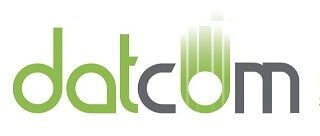It’s well-known that publishers are a major component of an author sharing their work with the world, but recent innovations threaten to disrupt the status quo of the industry. Like many industries, the publishing industry has been changed significantly by the introduction of new technologies that afford writers more liberty when producing their work. What can the business owner learn from these changes?
Traditionally, and still today, the publishing industry relies on manuscripts that are submitted by authors for publication. Once a manuscript has been accepted, the publishing house will provide the personnel and services necessary to polish the work and turn it into something that can make them money. This typically includes editing for quality, designing the book, and marketing it to potential readers.
Unfortunately, the problem that many budding authors run into is the fact that it can take publishing houses several weeks, to several months, to read and accept (or reject) a manuscript. Plus, after waiting so long for an acquisition editor to read a manuscript, it might not even get approved. If it does get approved, the author still has to wait several months to hold their new publication in their hands.
Today’s authors can potentially avoid the headaches that stem from dealing with traditional publishing houses. Thanks to technology like the Internet, authors can now share their work through many different outlets. Social media websites, personal web hosting, online product review sites, and so much more, all allow people to share their work with like-minded individuals.
In particular, self-publishing has taken the brunt of abuse from traditional publishing houses. At first, it might seem to be because they perceive it as a threat, but more often than not, they are just bent out of shape by how “unprofessional” self-publishing looks. When an author goes through the self-publishing process, they’re in charge of editing the manuscript and preparing it for publication, rather than taking advantage of established professionals in the industry. The end result could vary from a polished masterpiece to a mistake-ridden manuscript that becomes a commercial failure.
This brings up an excellent point; if you can use a service to make your job easier, save time, and conserve capital, should you do so? It depends on the level of quality that you can expect. If you’d rather have the work done professionally, outsourcing the service is always an option. For example, in the case of the self-published author, they might hire a freelance editor or editing firm to review their work and make edits, check for usage inconsistencies, and review the narrative. Basically, the concept is that onboarding a professional dedicated to the specific craft can be a great asset.
It’s not much of a stretch to compare this concept to the modern business environment. Outsourcing is a major trend that is more acceptable than ever, especially for technical positions like IT maintenance and technology procurement. Small and medium-sized businesses often don’t have the luxury of having an in-house IT department that they can depend on for their support and maintenance. Therefore, they look to other organizations, like DatCom, LLC, who can assist them without breaking their budget or looking for new hires.
If you’re having a hard time managing your business’s technology, we’re here to help. With our managed services, we can take care of your hardware, remotely administer patches and security updates, back up your systems, protect your infrastructure from threats, and so much more. Let us help you write the next chapter of your business’s journey to success. For more information, give us a call at (903) 320-5330.


